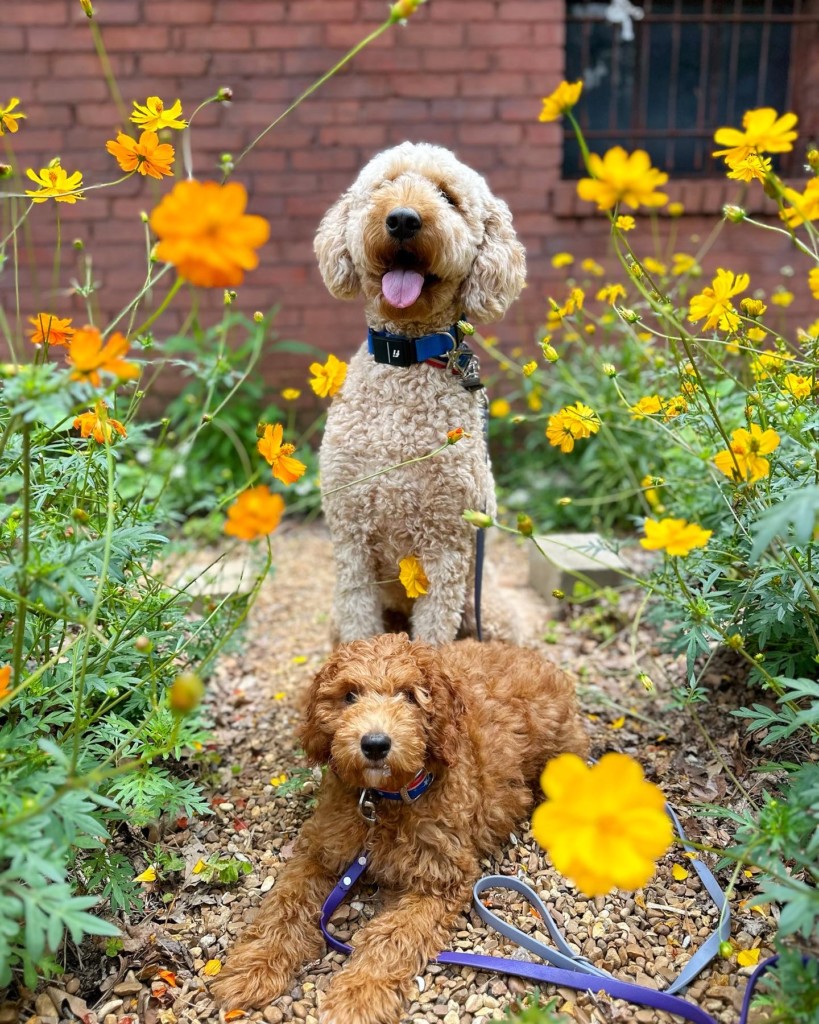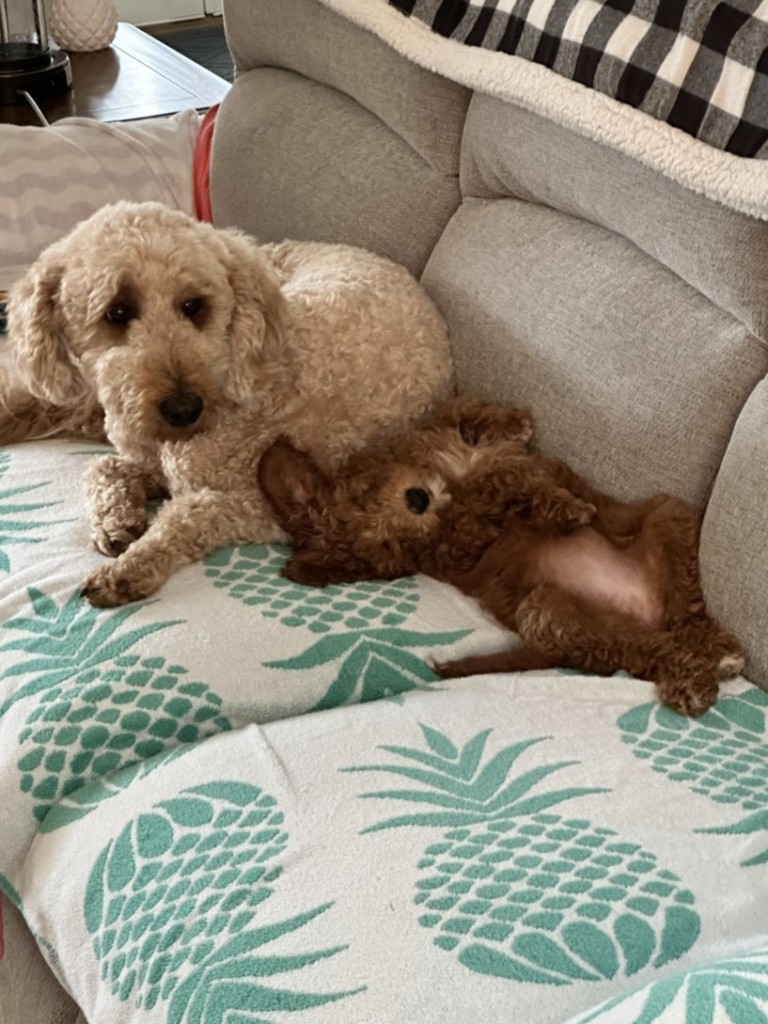Are you a proud new puppy parent, excitedly welcoming an adorable ball of fur into your home? While the joy of having a puppy is undeniable, it often comes with its share of challenges, especially when it comes to managing puppy behavior. In this blog post, we’ll tackle three common behavioral issues that new puppy owners encounter: chewing, barking, and potty training. We’ll also provide practical solutions and training techniques to help you and your pup navigate these early stages successfully. we got a new puppy this summer, so I am right there in the trenches with you!

1. Chewing: Puppies and Their Natural Instincts
Chewing is a natural behavior for puppies. Just like babies explore the world by putting everything in their mouths, puppies use their mouths to learn about their environment. However, this can lead to chewed shoes, furniture, and more. Here’s how to address it:
Solution:
- Provide Appropriate Chew Toys: Make sure your puppy has a variety of safe and durable chew toys. When your pup starts to chew on something they shouldn’t, redirect their attention to the toy. (Bones are great but NO RAWHIDE!)
- Supervision: Keep a close eye on your puppy, especially in the early days. If you can’t watch them, use a crate or playpen to confine them safely. You will definitely want to purchase a crate and puppy gate/fence (we have both).
- Puppy-Proof Your Home: Remove temptations. Put away items that your puppy might find interesting to chew.
2. Barking: Understanding the Canine Communication
Barking is a way for dogs to communicate. Excessive barking, however, can be disruptive and stressful. Here’s how to address it:
Solution:
- Identify Triggers: Pay attention to what triggers your puppy’s barking. Is it boredom, fear, or excitement? Understanding the cause helps you address the behavior.
- Positive Reinforcement: Reward your pup when they stop barking on command. Use treats and praise to reinforce quiet behavior. (ALL THE TREATS!) We still give treats non stop to Luna as she learns.
- Training Classes: Enroll in puppy training classes. Professional guidance can be invaluable in teaching your puppy when it’s appropriate to bark and when to be quiet.
3. Potty Training: The Key to a Clean Home
Potty training is a crucial aspect of puppy behavior and ownership. It requires patience and consistency. We are still in the middle of this because we made a few mistakes in the beginning. Here’s how to address it:
Solution:
- Establish a Routine: Take your puppy out first thing in the morning, after meals, and before bedtime. This establishes a routine that helps your puppy learn when and where to go. Most puppis can only hold their bladder for about an hour. SETTING A TIMER on my phone helped me to remember.
- Positive Reinforcement: Praise and reward your pup when they eliminate outside. Positive reinforcement makes them associate the act with a positive outcome. I clap and yell “yay! good girl Luna!” and give her a treat.
- Potty Bell: We bought a bell that hangs from a door made specifically for training. Ever time we take her out, we take her paw and make her “ring it.” After about 10 days, she was ringing it on her own when she wanted to go out!
- Accidents Happen: Understand that accidents are part of the process. Never scold or punish your puppy for accidents indoors, as this can lead to anxiety. If a puppy potties inside, it’s the owners fault, not the puppy’s fault.
- Crate Training: Consider crate training. Dogs naturally avoid soiling their living space, so a crate can help with potty training. Luna sleeps in a crate at night, and when we leave the house she goes in it as well.
- Don’t give them free reign of the house: This was our mistake at first. We gave her too much freedom and it was hard to keep up with her and there were several accidents. We got a doggie fence and fenced off the kitchen (with no rugs!) and it helps so much!

Remember, patience and consistency are key to addressing these common puppy behavior issues. Each puppy is unique, and it may take time for your furry friend to learn the ropes. Keep the lines of communication open with your pup and celebrate their successes along the way.
Related: Benefits of Owning a Dog


You must be logged in to post a comment.